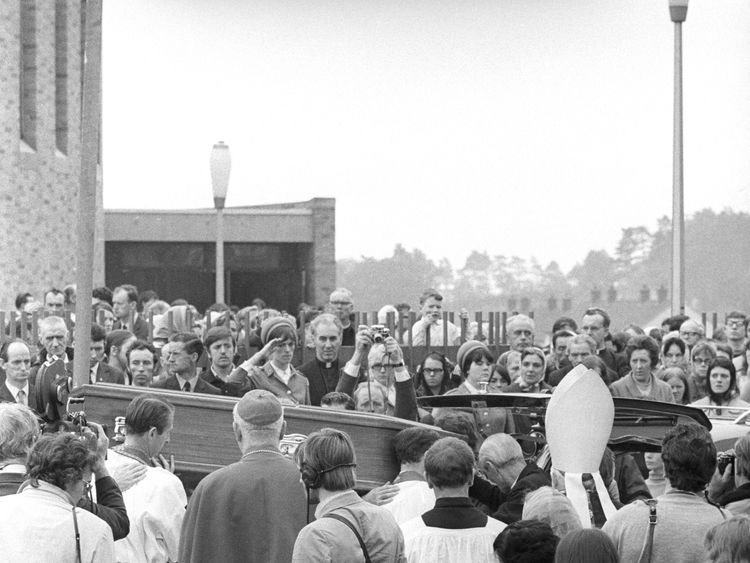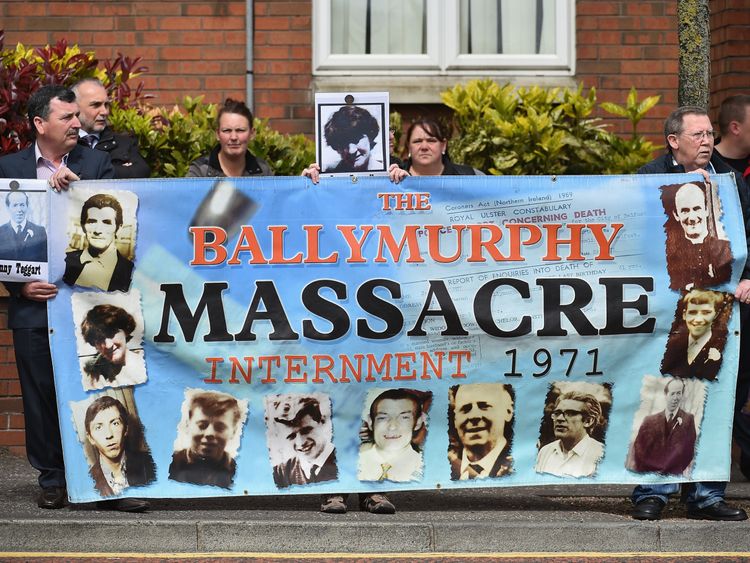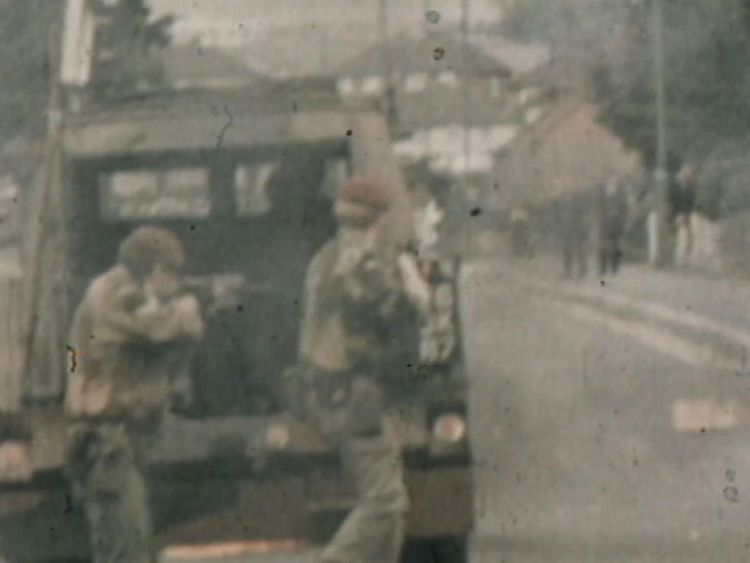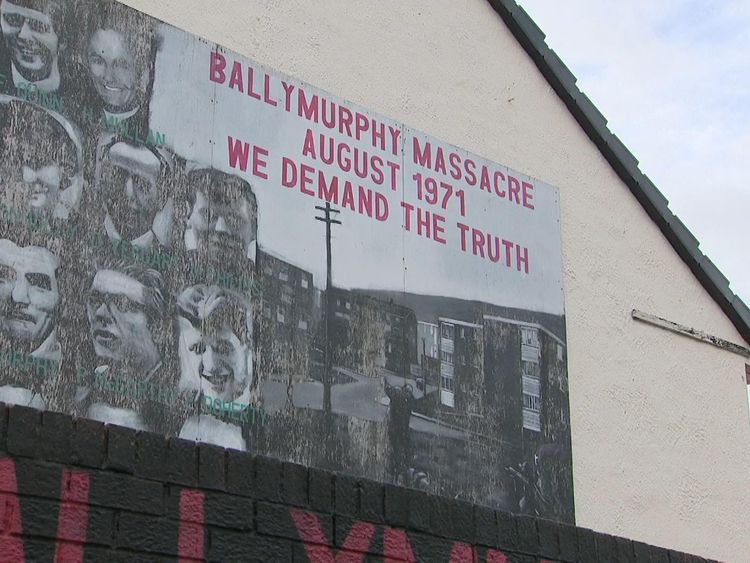Inquest to open 47 years after 'Ballymurphy massacre'
Relatives of those killed in what became known as the “Ballymurphy massacre” hope it will finally provide answers.
It was August 1971 when the British army launched Operation Demetrius – the introduction of internment without trial.
Over the course of three days, members of the Parachute Regiment shot dead 10 civilians at Ballymurphy in west Belfast.
The dead included a Catholic priest who had gone to the aid of the wounded and a mother of eight.
At the time, the army claimed the soldiers had come under gun attack and that the dead had been armed.
But no one has ever produced forensic evidence to support that allegation and families have spent decades campaigning for justice.
Ballymurphy was overshadowed by Bloody Sunday, when the Parachute Regiment shot 14 people dead in Derry six months later.
John Teggart, whose father Daniel was one of the victims, has waited a lifetime for his death to be investigated.
“He was shot in the leg, initially shot in the leg and the eyewitness says he was shot repeatedly as he lay on the ground defenceless,” he said.
“In total, there was 14 shots passed through his body.”
In recent months, the loyalist paramilitary Ulster Volunteer Force (UVF) claimed it was behind some of the Ballymurphy killings.
Doug Beattie MLA, a former British army captain turned Ulster Unionist politician, says families need the whole story.
“This was not just the British army killing civilians,” he said.
“What hasn’t happened is the IRA have not come forward to give their side of the story.
“Those people who were there, who are now senior members of Sinn Fein, need to come forward and say exactly what they were doing.”
The inquest into the deaths of Francis Quinn, 19, Father Hugh Mullan, 38, Noel Phillips, 20, Joan Connolly, 50, Daniel Teggart, 44, Joseph Murphy, 41, Edward Doherty, 28, John Laverty, 20, Joseph Corr, 43 and John McKerr, 49, is expected to last six months.
Source: Read Full Article






